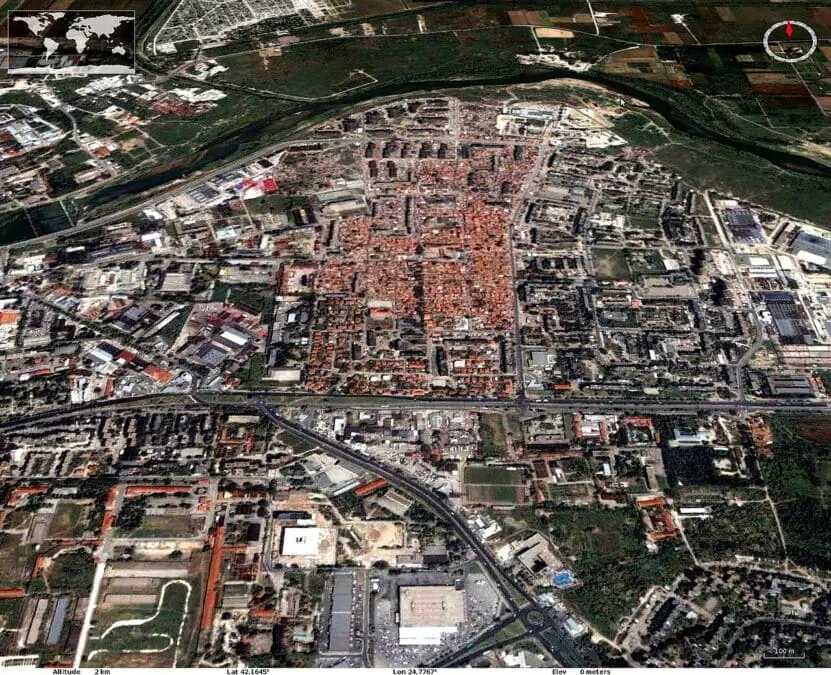Dozens of Bulgarian families from Duisburg have received letters from German municipal authorities with a notification that they must leave their apartments by mid-September 2024. This was reported by the organization “Stolipinovo* in Europe”.
From there they also state that all those affected are tenants from the streets Gertrudenstraße, Diesterwegstraße, Pestalozzistraße, Wilfriedstraße, Halskestraße and Wiesenstraße, who are correct tenants of the company Ivere Property Management. It turns out that the company that owns the properties, about 50 in total, has not paid the electricity and water bills to the municipal utility company for months. It now intends to cut off the drinking water supply, which municipal authorities say is making the apartments unfit and leading to a planned mass eviction.
“Investigations show that this fraudulent scheme, in which the owner company collects amounts for electricity and water from the tenants, but does not forward them to the respective companies, has also been implemented in other cities in the Ruhr and Thuringia. The difference, however, is that there the local authorities have fully sided with those affected, instead of using forced evictions as a measure to ‘solve’ the problem. Policies of forced evictions are not new to Duisburg. In our work, as a mutual aid society for migrants from Bulgaria and other Eastern European countries, we work daily with people who have been forcibly removed from their homes. After restrictions on Bulgarian and Romanian workers fell in 2014, the municipality of Duisburg introduced forced eviction policies in order to reduce the number of habitable dwellings declared unfit. Since the beginning of 2014, 96 homes have been inspected, with 79 of them immediately closed. This leaves thousands of residents, mostly Bulgarians and Romanians, without shelter. In our practice, we encounter extremely severe cases in which minor children, in need of treatment, elderly people on hemodialysis are forcibly evicted without prior notification and without provision of alternative housing. The upcoming mass evictions will affect over 900 residents of the neighborhood, most of whom are Bulgarian citizens who earn their living in Germany as construction, supply and industrial cleaning workers,” the organization wrote.
The September 5, 2024 protest against the evictions brought together over 400 residents of the neighborhood, including many of the affected Bulgarian citizens, who demanded the repeal of the repressive municipal measures.
* Note: Stolipinovo is a neighborhood in the eastern part of the city of Plovdiv, on the southern bank of the Maritsa River. It is the largest urban ghetto in Bulgaria with a population of nearly 40,000. The vast majority of the inhabitants are Muslim gypsies, traditionally called millet and self-identified as Turks. Another major group, comprising an estimated 15-20% of the residents, mainly in the north-eastern edge of the district, are Christian Gypsies, these days mainly evangelized, who are traditionally called Burgudji and self-identify as Roma.
Stolipinovo arose in 1889, when the municipal council of Plovdiv, on the occasion of a smallpox epidemic, decided to evict the gypsies scattered around the city, at that time about 350 people, to a newly created “gypsy village” 2 kilometers east of Plovdiv.[3] The first residents were families from the Bey-Mejid neighborhood of Plovdiv. It was originally called “New Village”, but later it was named after General Stolypin, deputy of Prince Dondukov-Korsakov, also a participant in the Russo-Turkish War of 1877-78, after which the Liberation of Bulgaria became a fact.
There is a trade in heroin in the neighborhood and it is known as the largest distribution depot in Southern Bulgaria. Crime and trafficking in women is the other problem, as well as moneylenders lending money to poorer people and then demanding triple the amount given. According to information from the 6th police station in Plovdiv, Stolipinovo quarter is the most criminal of all the city districts in the city of Plovdiv.
According to the Report on the Implementation of the Joint Memorandum on Social Inclusion of the Republic of Bulgaria, “The share of illegal construction in large urban ghettos, such as the Stolipinovo district in Plovdiv, reaches 80%. “According to other sources, this share for Stolipinovo is 98%.
Photo: Oblique Aerial Map view of Stolipinovo district of Plovdiv, BG / NASA – NASA World Wind. Created: 05:46, 21 August 2010 (UTC).







